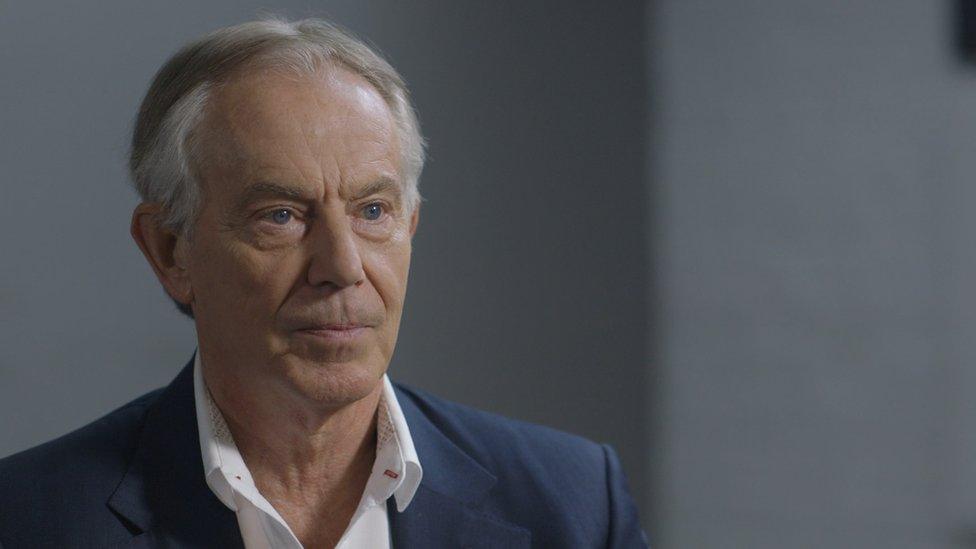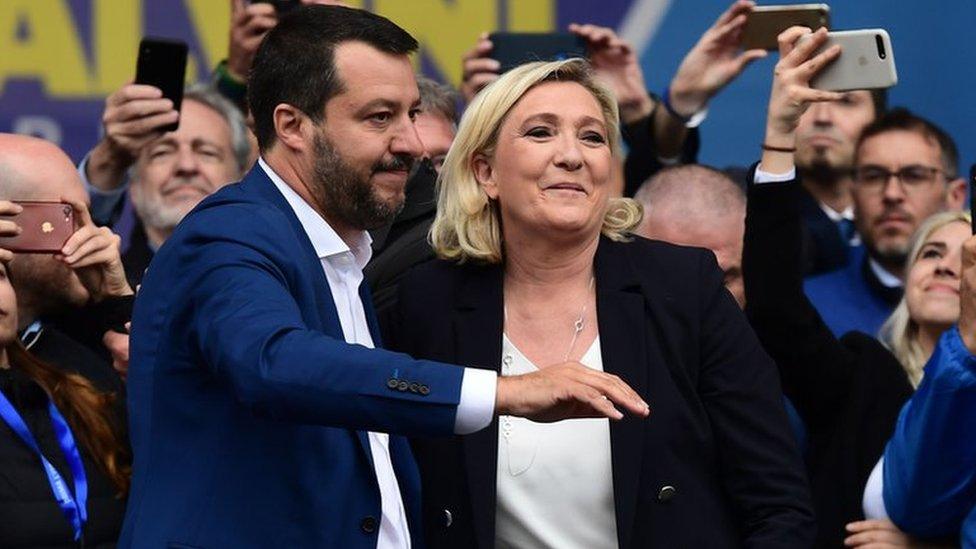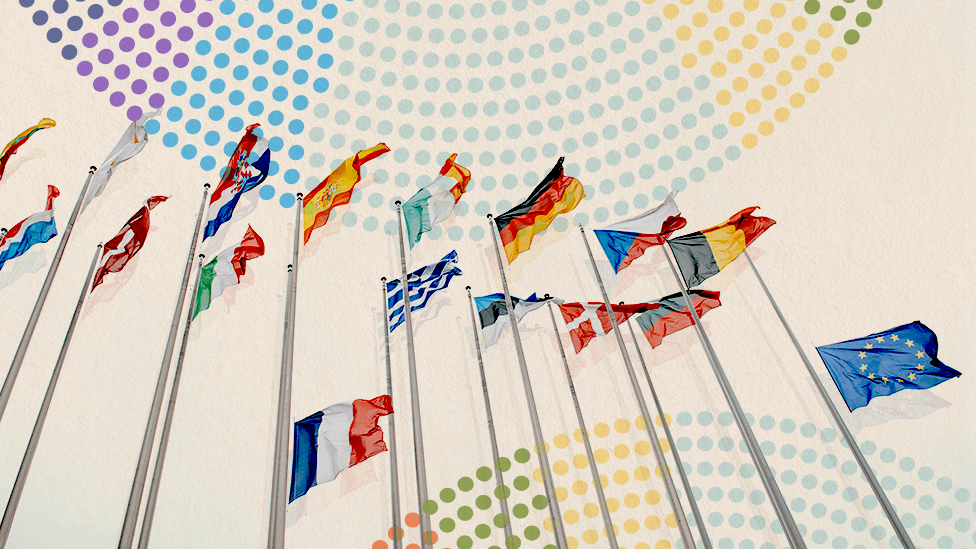Blair: Social democracy needs 'narrative about the future'
- Published

Social democracy must have "a narrative about the future" says former Prime Minister Tony Blair
"The central problem of social democracy is simple", former prime minister Tony Blair said. "They've got to have a narrative about the future."
By his formulation then, the crisis of Europe's centre-left may have been long and painful, but it need not be terminal.
Finding that new narrative in a way that works across dozens of European electorates, is another matter entirely.
Certainly it won't happen before the European election starting on 23 May, where the centre-left may well find itself trailing the populist right.
Matteo Renzi, the former Italian PM, told Newsnight the fortunes of his Democratic Party are now a secondary matter.
"Maybe we will be back, maybe not. This is not my priority," he said. "My priority today is a great cultural fight against populism."
What's happening across Europe?
There are a number of different things going on across the European Union's 28 electorates as they go to the polls.
There is fragmentation of the old class-based political order; the emergence of new populist forces, particularly but not exclusively on the right; and there are the usual national 'counter-cyclical' dynamics of voters wanting to punish their incumbent government.
While it's always tricky to generalise across so many different countries, the dynamics look bad for the social democrats.
The centre-right is expected to emerge as the largest bloc in the new European Parliament, as it is in the current one.
The populist right aspires to form the second biggest bloc, displacing the centre-left in Brussels.
In the early 2000s, left of centre governments ran most countries in the EU. Now it's around one quarter of them.
Helle Thorning-Schmidt, Denmark's former leader, believes her social democratic party may be on the verge of regaining power, bucking the wider trend, because it has addressed voter concerns about identity, immigration, and security.
"If you're not a party that gives sufficient answers to the new immigration issues, to all discussions about multiculturalism… you are going to lose out", she said.
"So it's not only about the economy, it's also the parties that have understood that it's about culture, and nation and community."
But others reject the Danish move to the right.
Kevin Kuhnert, leader of the youth wing of the German SPD, a rising star of the European left, believes these parties need to go back to basics, saying, "the key to winning back voters is the original socialist promise - a state that protects".
Unafraid to use the 'S' word, Mr Kuhnert is an enemy of austerity.
He also argues that they need to campaign more effectively on climate change.
In Germany, the SPD has been losing votes to the Greens as well as the right-wing populists of the Alternative for Germany (AfD).
Among the luminaries of the left we spoke to, there are differences about political strategy, as well as policy.
'Don't fear right-wing coalitions'
Helle Thorning-Schmidt argues they shouldn't be afraid to enter coalitions with right-wing populists (as she herself did while Danish PM), as it puts pressure on them to deliver something more than slogans.
"It makes it harder for them to be protest parties and stand on the outside and shout."
For Matteo Renzi this is unacceptable - after the last Italian election he rejected coalition with the populists.
When I asked Tony Blair whether he took the Thorning-Schmidt line or that of Angela Merkel, the German chancellor who ruled out any possible deal with the AfD, he gave a nuanced answer.
"It depends on what you're being asked to trade in terms of policy in order to go into that coalition", Mr Blair explained.
"If, for example, you know going into coalition with a right-wing party means you're going to adopt policies that are completely contrary to your principles then you shouldn't do it.
"If on the other hand by forming that coalition you're keeping out a more destructive right wing coalition then you might do".
Unsurprisingly, he castigates the current Labour leadership, and they reject his blueprint.
But the Blair formula involves creating a compelling narrative for a future where the dizzying changes engendered by artificial intelligence, big data and robotics need to be channelled to create hope rather than insecurity.
Matteo Renzi cites the En Marche party in France as an example that social democracy can still succeed.
Even though Emmanuel Macron has gutted the French socialists to the point where they may win no seats in these European elections, his party will likely align with the liberal bloc in Brussels, not the centre-left.
This hints at the bigger issue of fragmentation on the 'progressive' wing of politics.
Those seeking to oppose nationalist populists may opt to vote for liberal, hard left, green or social democratic candidates.
There are issues on the right too, but not to the same degree.
This has many in Brussels worrying that the forthcoming elections may mark an inflection point - one where centre-left parties supporting the European project, may find themselves in third or even fourth place behind the centre right, nationalists and liberals.
You can watch Newsnight on BBC Two weekdays at 22:30 or on iPlayer, subscribe to the programme on YouTube, external and follow it on Twitter, external.
- Published21 May 2019

- Published15 May 2019

- Published8 May 2019

